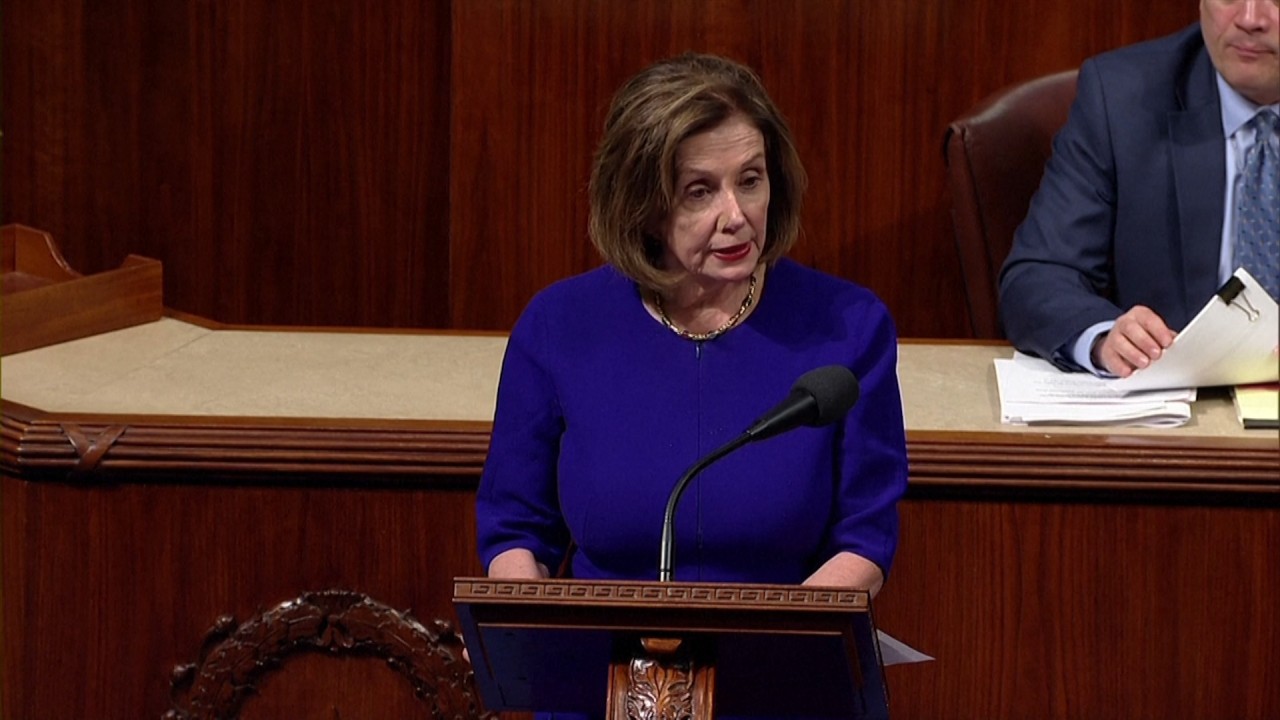
US lawmakers expected to give final approval to Uygur bill next week
- If signed into law by President Trump, Washington could impose sanctions on Chinese officials over internment camps in Xinjiang
- The bill is expected to be considered under a procedure commonly used to expeditiously move non-controversial legislation
The US House of Representatives will soon vote on Senate-approved legislation that would pave the way for sanctions on Chinese officials over the treatment of ethnic minority groups in China’s west, three congressional staff members said on Friday.
Lawmakers introduced the legislation last year as a response to Beijing’s mass internment of Uygurs and other largely Muslim ethnic minority groups in the Xinjiang Uygur autonomous region.
The Uygur Human Rights Policy Act will move to the House floor on Wednesday, two staff members said.
There were no changes to the Senate’s bill, they said, meaning that if the lower chamber approved the legislation – as it is expected to – the bill would go to President Donald Trump to be signed into law. He could reject the bill, but presidential vetoes can be overturned by a two-thirds majority in Congress.

01:57
US House passes Uygur law demanding sanctions on China over human rights abuses in Xinjiang
Along with other hot-button human rights issues such as Hong Kong, there is overwhelming and bipartisan support among lawmakers for a stern US response to Beijing’s actions in Xinjiang.
House Speaker Nancy Pelosi, Democrat of California, has accused the Chinese government of subjecting Uygurs in the region to “unabated abuse and repression”.
The bill was expected to be considered on Wednesday under suspension of the rules, said one Democratic House aide, referring to a procedure commonly used to expeditiously move non-controversial legislation.
The House’s anticipated approval of the bill would bring to an end a months-long back-and-forth between the Senate and House over the language of the legislation, with discrepancies between various versions previously passed by the two chambers preventing it from moving to the White House.
The bill passed by the Senate on May 14 removed a section on tightening US export controls that had been introduced in a version approved by the House in December.
Only one lawmaker in the House, Kentucky Republican Thomas Massie, voted against the bill then, citing concerns that the use of sanctions as required by the legislation would invite foreign countries to “meddle in our affairs”.
Beijing, which calls the mass internment camps in Xinjiang “vocational training centres”, routinely lambasts any US lawmaker who speaks out or offers legislation on the matter.
When the House passed the previous version of the bill in December, a Chinese foreign ministry spokeswoman called on the US to “prevent this bill from becoming law” and threatened countermeasures “according to how the situation develops”.
If signed into law, the Uygur Human Rights Policy Act would require the US administration to issue a report within 180 days identifying all foreign individuals deemed responsible for human rights abuses in Xinjiang, including torture, extrajudicial and prolonged detention, and “cruel, inhuman or degrading treatment”.
The administration would then be required to freeze their US-held assets and bar them from stepping foot on American soil, though the president could waive sanctions under certain circumstances.
The bill also requires that the administration deliver to Congress detailed reports into human rights abuses in Xinjiang, any efforts by Beijing to intimidate or harass US residents or citizens, and the security and economic implications of the Chinese government’s measures in the region.
Senator Marco Rubio, the Republican of Florida who introduced the bill, said its Senate passage last week sent “a clear message to Chinese officials responsible for egregious human rights abuses committed against the Uygurs that they will be held accountable”.

Pressure from Capitol Hill on the executive branch to punish China over the camps has remained high even as the Trump administration has enacted some punitive measures, including the imposition of sanctions last October on a number of Chinese government and private entities over their implication in “human rights violations and abuses” in Xinjiang.
On Friday, the Department of Commerce announced that it would soon add nine more entities to that first tranche, including the Institute of Forensic Science under China’s Ministry of Public Security. The designations restrict US companies’ ability to export items to the targeted entities, which also include a number of companies alleged by the department to have enabled “high-technology surveillance in [Xinjiang]”.

